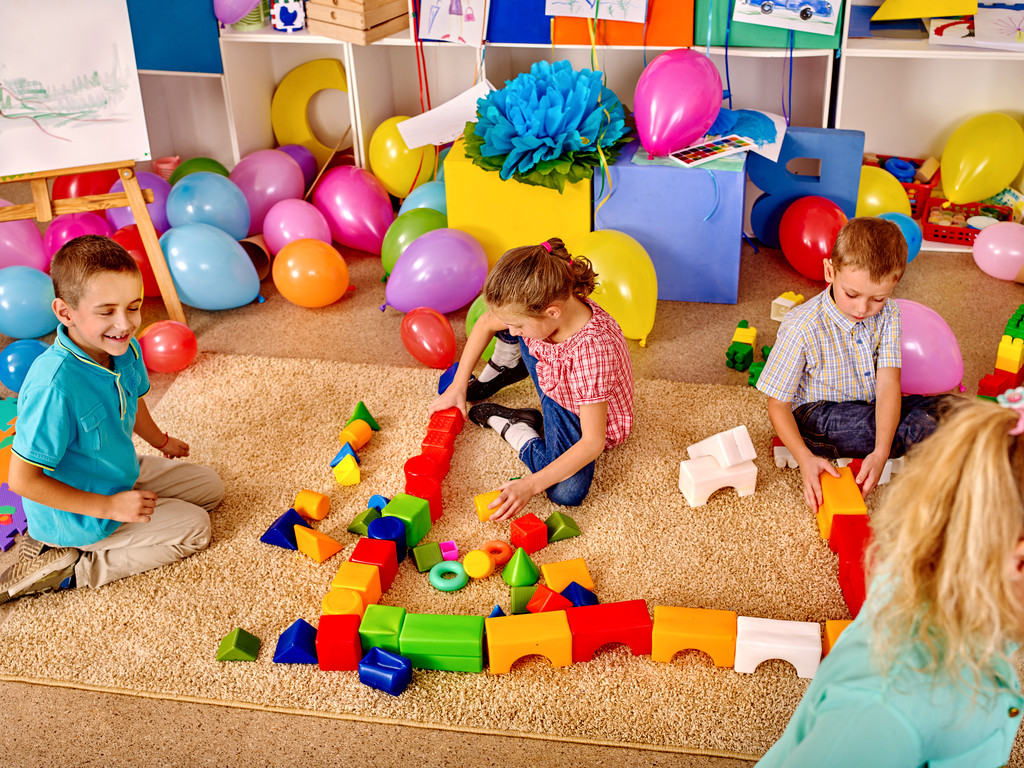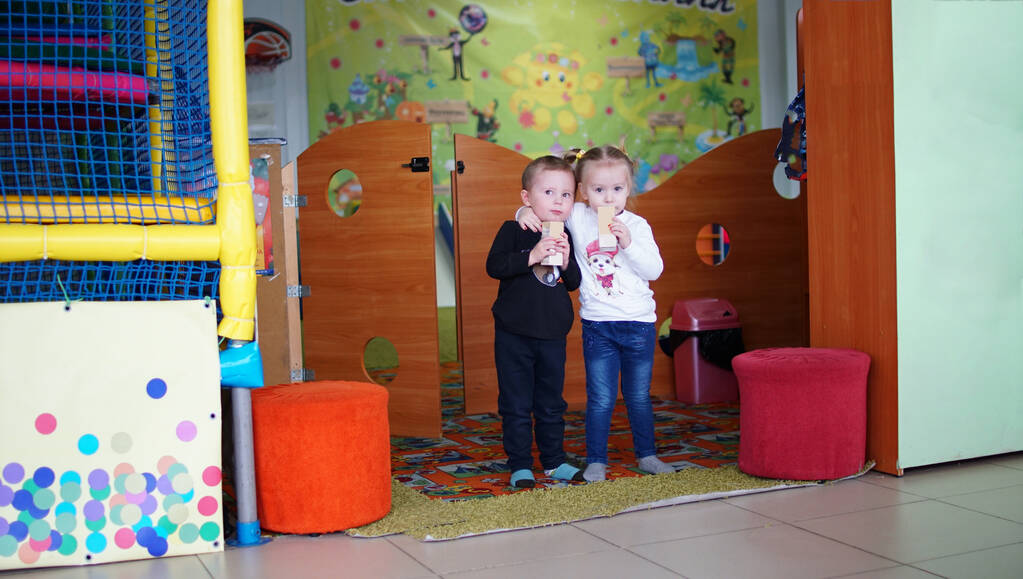Discover effective strategies and tips for parents on how to handle defiance in daycare.
How to Handle Defiance in Daycare: Tips for Parents
As a parent, it’s not uncommon to encounter defiance from your child, especially when it comes to daycare. Don’t worry, though! This article is here to help you navigate this tricky situation and provide you with some tips and strategies to handle defiance effectively. So let’s dive in!

Understanding Defiance in Children
Defiance is a normal part of child development, and it can manifest differently depending on their age and temperament. However, it’s important to understand the psychology behind defiant behavior to address it effectively.
When children defy authority, it’s often a way for them to assert their independence and test limits. They want to explore boundaries and exert control over their environment. Remember, it’s not personal! They’re just exploring their newfound autonomy.
But what exactly goes on in the mind of a defiant child? The psychology behind defiant behavior can be complex and multifaceted. It may stem from a variety of factors, including frustration, a desire for attention, or a need for power.
For some children, defiance may be a response to feeling misunderstood or unheard. They may resort to challenging authority figures as a way to express their emotions and assert their individuality. By understanding the underlying motivations, you can respond in a way that meets your child’s emotional needs while still maintaining appropriate boundaries.
It’s also important to recognize that defiance can be influenced by external factors. Try to recognize any triggers that may be causing your child’s defiance. Are they tired, hungry, or overwhelmed? Children, like adults, can have bad days too. By addressing their underlying needs, you can help reduce defiant behavior and create a more harmonious environment.
The Psychology Behind Defiant Behavior
Defiant behavior in children can be a complex interplay of emotions, thoughts, and desires. It’s not just about being stubborn or rebellious. It’s a way for children to navigate their world and establish their identity.
Some children may use defiance as a defense mechanism. They may feel anxious or threatened by certain situations, and defying authority becomes a way to protect themselves. By understanding this underlying fear, you can approach their defiance with empathy and reassurance.
For others, defiance may be a way to gain attention. Children crave attention and validation from their caregivers, and if they feel neglected or overlooked, they may resort to defiant behavior to get noticed. By providing them with positive attention and reinforcing good behavior, you can help redirect their need for attention in more constructive ways.
Age-Appropriate Defiance vs. Behavioral Issues
It’s important to distinguish between age-appropriate defiance and more concerning behavioral issues. While defiance is a normal part of child development, prolonged and extreme defiance could be a sign of a deeper issue that requires professional intervention.
As children grow and develop, their defiance should gradually decrease as they learn to navigate social norms and expectations. However, if defiance persists and becomes more intense over time, it may be indicative of an underlying behavioral or emotional problem.
If you have concerns about your child’s behavior, don’t hesitate to consult with a pediatrician or mental health professional. They can provide guidance and support to ensure your child’s emotional well-being. Early intervention is key to addressing any potential issues and helping your child thrive.
Remember, understanding and addressing defiance in children requires patience, empathy, and a willingness to explore the underlying reasons behind their behavior. By creating a supportive and nurturing environment, you can help your child develop healthy coping mechanisms and navigate the challenges of growing up.
Strategies for Managing Defiance
Now that you understand the psychology behind defiance, let’s dive into some strategies to effectively manage it:
Defiance in children can be a challenging behavior to address, but with the right strategies, you can create a positive and cooperative environment. In this section, we will explore some effective techniques that can help you manage defiance in daycare settings.
Effective Communication Techniques
Open and honest communication is key when addressing defiance in daycare. It is important to remember that children, even at a young age, have their own thoughts, feelings, and perspectives. By actively listening to your child and validating their emotions, you can create a safe space for them to express themselves.
When communicating with your child, it is essential to use simple and age-appropriate language. This allows them to understand the reasons behind your expectations and the consequences of their actions. By explaining things clearly, you can help them develop a better understanding of appropriate behavior.
Furthermore, maintaining a respectful and empathetic approach can foster a sense of understanding and cooperation. By acknowledging your child’s feelings and needs, you can work together to find solutions and address any underlying issues that may be contributing to their defiance.
Setting Clear Expectations and Boundaries
Consistency is crucial when dealing with defiance. Setting clear and realistic expectations for your child’s behavior is essential in helping them understand what is expected from them. By communicating these expectations consistently, you provide them with a sense of security and structure.
In a daycare setting, it is beneficial to collaborate with the providers to establish consistent rules across different environments. This way, your child will have a clear understanding of what behaviors are acceptable regardless of the setting. Consistency between home and daycare can help reinforce the boundaries and expectations you have set, making it easier for your child to navigate their behavior.
When setting boundaries, it is important to be firm but fair. Clearly communicate the consequences of crossing those boundaries, and consistently follow through with appropriate discipline. This helps your child understand the importance of respecting rules and reinforces the idea that their actions have consequences.
Positive Reinforcement and Reward Systems
Positive reinforcement goes a long way in motivating desired behaviors and reducing defiance. By focusing on the positive aspects of your child’s behavior, you can create an encouraging environment that promotes cooperation.
Implementing a reward system can be an effective strategy to reinforce positive behavior. This could involve praising your child for their efforts, offering small incentives, or using a sticker chart to track their progress. By acknowledging and celebrating their achievements, you provide them with the motivation and encouragement they need to continue exhibiting positive behaviors.
It is important to note that rewards should be used as a tool to encourage positive behavior, rather than as a bribe or a means of manipulating your child. The goal is to help them develop intrinsic motivation and a sense of pride in their accomplishments.
By implementing these strategies and consistently applying them in your interactions with your child, you can effectively manage defiance in daycare settings. Remember, each child is unique, and it may take time and patience to find the strategies that work best for your child. With a supportive and understanding approach, you can help your child navigate their defiance and foster a positive and cooperative relationship.
Collaborating with Daycare Providers
Handling defiance effectively requires collaboration between parents and daycare providers. Building a strong parent-provider relationship is essential for creating a consistent and supportive environment for your child.
When it comes to your child’s behavior, open and regular communication with daycare providers is vital. By sharing your concerns, discussing strategies, and exchanging feedback, you can work together as a team to address and manage defiance more effectively.
It’s important to remember that daycare providers are experienced professionals who have dealt with defiant behavior before. Trusting their expertise and relying on their guidance can help you navigate through challenging situations.
Building a Strong Parent-Provider Relationship
Building a strong parent-provider relationship involves more than just communication. It’s about establishing trust and mutual respect. Take the time to get to know your child’s daycare providers and show appreciation for the work they do.
Attend parent-teacher meetings or conferences to discuss your child’s progress and behavior. These meetings provide an opportunity to address any concerns or questions you may have and to gain insight into your child’s experiences at daycare.
Additionally, consider volunteering at the daycare center. By actively participating in your child’s daycare community, you can build stronger connections with the providers and gain a deeper understanding of their approach to handling defiant behavior.
Consistency Between Home and Daycare
Creating consistency between home and daycare is crucial for your child’s understanding of behavior expectations. When rules and expectations remain the same across different environments, children are more likely to grasp the importance of certain behaviors.
Take the time to talk with daycare providers about their approach to handling defiance. Share strategies that have been successful at home and ask for their advice on how to reinforce them at daycare. By working together, you can create a cohesive plan that aligns both home and daycare environments.
Consistency also extends to discipline techniques. Discuss with daycare providers the discipline methods they use and ensure they align with your parenting style. Consistency in discipline helps children understand the consequences of their actions and promotes a sense of fairness.
Remember, collaboration with daycare providers is an ongoing process. As your child grows and develops, their behavior may change, and new challenges may arise. By maintaining open lines of communication and a strong parent-provider relationship, you can continue to address defiance effectively and provide the support your child needs.
Coping Mechanisms for Parents
Dealing with defiance can be challenging, so it’s crucial to take care of yourself as a parent. Here are some coping mechanisms to help you navigate this journey:
Stress Management Techniques
Defiance can be stressful, but it’s essential to manage your stress levels to respond effectively. Find healthy ways to relax and recharge, such as practicing mindfulness, engaging in physical activity, or pursuing hobbies.
Remember, you need to take care of your well-being in order to provide the support your child needs.
Seeking Support and Guidance
Parenting can feel overwhelming at times, and it’s okay to ask for help. Reach out to other parents, support groups, or professionals who can provide guidance and understanding.
By seeking support, you can gain valuable insights and strategies that will help you navigate your child’s defiant behavior more effectively.
Preventing Defiant Behavior in the Future
While managing defiance is important, preventing it from happening in the first place is even better. Here are some tips to foster positive behavior:

Fostering Emotional Intelligence in Children
Emotional intelligence plays a vital role in mitigating defiance. Teach your child how to identify and manage their emotions in healthy ways. Encourage empathy, emotional awareness, and effective communication skills.
By fostering emotional intelligence, you equip your child with the tools to navigate their feelings and express themselves without resorting to defiant behaviors.
Encouraging Positive Behavior at Home
Create a positive and nurturing atmosphere at home. Celebrate your child’s achievements, encourage open communication, and provide them with opportunities for independence and responsibility.
By focusing on positive reinforcement and creating a loving environment, you empower your child to make better choices and reduce defiant behaviors.
Handling defiance in daycare requires patience, understanding, and proactive strategies. By implementing these tips, you’ll be better equipped to address and manage your child’s defiant behavior effectively. Remember, every child is unique, so be flexible and adapt these strategies to meet your child’s individual needs. Stay calm, stay playful, and watch as your child grows with your loving guidance!



